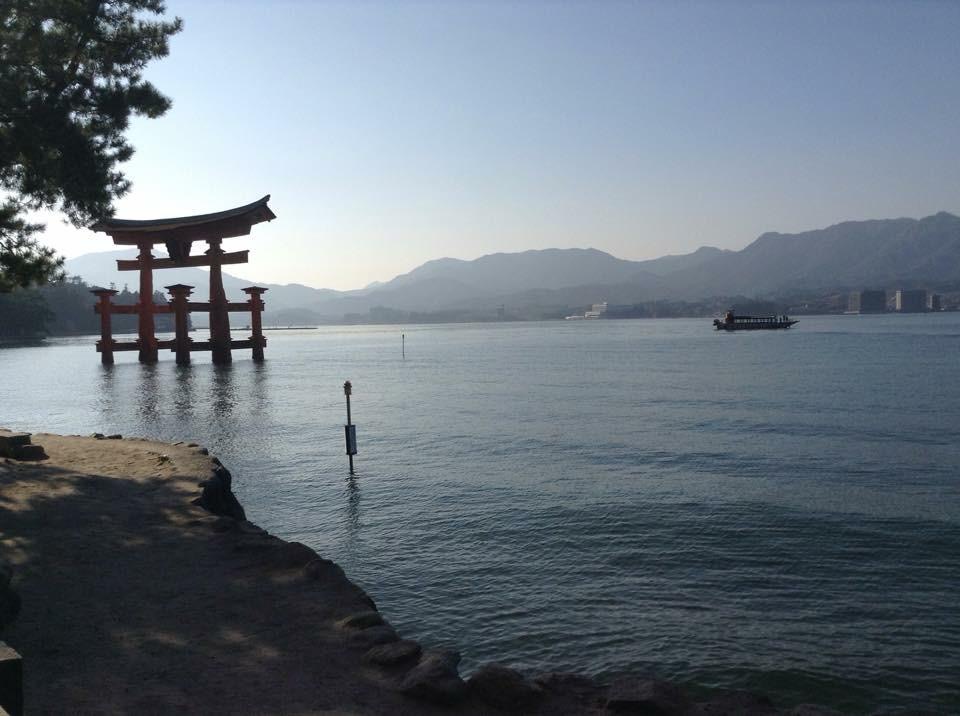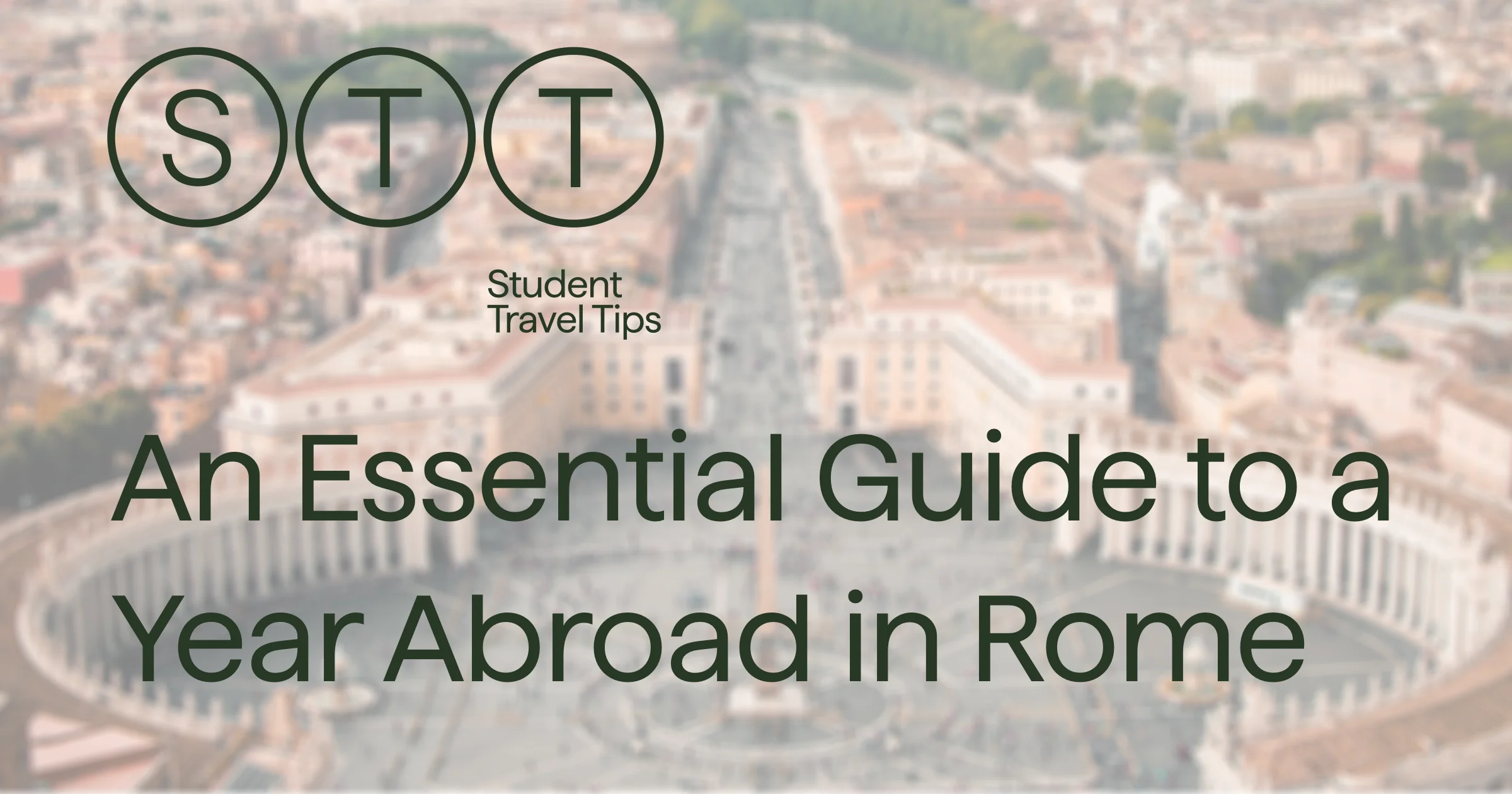The Ultimate Guide to a Year Abroad in Taiwan
The Ultimate Guide To A Year Abroad in Taiwan with top tips on finding accommodation, getting a visa in Taiwan, handling money and nightlife in Taiwan. This blog is written by Amileh Begum as part of the Travel Aware campaign with the FCDO.

Taiwan isn’t your typical study abroad destination. But it should be. It’s a tiny but beautiful location, with nearly 70% of the island covered by towering mountain ranges. And there’s even Taipei, Taichung, and Kaohsiung; some of the biggest and densely populated urban cities of Taiwan, full of bright lights, amazing nightlife, and huge shopping malls. I studied in Kaohsiung City for a year, the third biggest city in Taiwan located in the South of the island. Below are some of the biggest things you need to know before embarking on a year abroad in Taiwan.
Visas in Taiwan
When I organised my visa as a foreign exchange student for Taiwan, I entered with a visitor visa (which is for less than 6 months) then applied and switched to a resident visa once I was here for a fee. However, visa rules can change so the best place to visit is the FCDO travel advice here and you can sign up to travel alerts for any changes so you’re updated immediately and will know what applies to you. You can also check out the Taipei Representative Office in the UK for further information on visas. To apply for these visas I needed the below – but again, it’s worth checking the latest advice as you prepare for yours:
- 2 colour UK passport size photos
- Original passport and one photocopy
- Flight schedule
- Proof of financial support
- A copy of the official letter issued by your Taiwanese university
- Admission letter issued by your Taiwanese university
- Proof of enrolment issued by your UK university
- A health certificate form completed by either a UK or Taiwanese hospital
- Its difficult to get this health certificate form completed in the UK, and it’s very expensive as the NHS doesn’t cover this so you could ask the mission office in the UK if you can complete it once you’re in Taiwan where it’s a lot easier and so much cheaper (it worked for me!)
A resident visa is a single-entry visa which means if you want to go back home during the Winter holidays, or go traveling abroad during your year in Taiwan, you’ll need to apply for an Alien Registration Card (ARC). You can only get an ARC if you’re on a resident visa, not the visitor visa. The ARC you can only apply for once you’re in Taiwan and you must do it within 30 days of entering the country (or 30 days from receiving a resident visa if you got after you arrived in Taiwan).
Health Insurance in Taiwan
Your home university typically provides you with a basic health insurance for your study abroad but will recommend you getting an additional insurance to cover what they don’t. During my time here, if you had an ARC then you needed to enrol onto Taiwan’s national health insurance (NHI). The office in charge of overseas students at your Taiwanese university will help you enrol onto the insurance program.
But be careful and don’t make the same mistake I did! You may not be eligible for the NHI if you leave Taiwan for a period of more than 30 days within your first 6 months of entry. Otherwise, you’ll have to find private health insurance in Taiwan. So, if you’re feeling homesick or want to go explore the rest of Asia in your winter holiday, cut it down to less than a month or wait until the summer holidays.
Transport in Taiwan
Taiwan has amazing local transport links. The most convenient is the MRT (their Tube) which is super cheap and reliable. You can either use your student card to pay for travel or buy an easycard or iPass at any convenience store. Topping up is also simple; just head to your local convenience store or top up when you’re at the MRT station. However, the MRT only exists in their 3 biggest cities – Taipei, Taichung, and Kaohsiung, with Taoyuan having only one MRT line. Buses are also very cheap and a popular form of transport which again you can pay with your student card, easycard or iPass. Be warned though! The bus drivers drive very fast in Taiwan, and the buses are very old and rickety (the doors open and close before the bus has even stopped!) While it may be handy to download a live bus app, in my experience, the bus schedule is often inaccurate and buses in Kaohsiung came every 25-30 minutes. And make sure you stick your hand out when the bus is approaching otherwise they’ll drive past! All buses will have their last departure by midnight but most have their last departure between 9.30pm – 11pm. The MRT closes at midnight so on nights out you’ll need to book a taxi. Uber is widely available in Taiwan but you can also book taxis at any convenience store with their self-service machines.
City bikes, called YouBikes, are such a fun and super cheap way to get around. The first half an hour is free, and it’s 25p for every 30 minutes after that. There are docking stations absolutely everywhere in the city so you’ll always find a place to rent and dock. To access the bikes you just tap your student card/easycard/iPass card. For inter-city travel, the western side of Taiwan is serviced by their high speed rail (HSR) which is very quick and affordable (around 2.5 hours from the very north to the south). The eastern side is highly mountainous so unfortunately there’s no HSR services to get here. Instead, you can take local trains (TRA) which are longer but will have picturesque views. You could also take the TRA on the western and central side if you’re on a tighter budget.

Finding Accommodation in Taiwan
There are three typical options for your living arrangements during your study abroad in Taiwan. The first is university dorms. This is cheap and the most convenient option but you will be sharing your living space with others. Also, it’s not uncommon for there to be curfews at the dorms (11pm). The second option is off-campus, university-affiliated housing which is also convenient in terms of location but the most expensive. Here, the majority of renters will be other exchange students so it’s a good opportunity to meet other international students. The third option is to rent privately. This is the cheapest option and depending on what you can find, it can also be in a convenient location. While it may seem difficult to seek out privately rented accommodation due to the language barrier, the overseas student affairs office at your Taiwanese university will help you find accommodation. You can also download apps to find housing and use the translation function on your phone to translate from Chinese to English. No matter which type of accommodation you pick, they will all be significantly cheaper than what you’re used to in the UK (for reference, my monthly rent and bills was £197 which was on the higher end of the spectrum).
Nightlife in Taiwan
Taipei has one of the best nightlives in Asia and there’s all sorts of clubs and bars for everyone. Kaohsiung had 5 nightclubs but many upscale and casual bars. Although, everyone who’s lived in Asia knows that convenience stores are the best bar because it offers seating, sells reasonable drinks, and so it’s the perfect place to have pres before a night out! Taiwan is very strict about ID so never forget your ID. Be suspicious of cheap drinks or offers like free drinks night because the alcohol may make you sick (speaking from personal experience). Smoking indoors is now banned across Taiwan so do not smoke in bars or clubs and all e-cigarettes including vapes are banned in Taiwan. And be aware that there will often be police presence around and in nightclubs and that club goers might be subjected to bag inspections by the police. This is a usual occurrence in Taiwan but nothing to worry about as long as you aren’t carrying anything illegal; drug laws are stricter than in the UK, and involvement with illegal drugs, which includes cannabis, can attract strong sentences. It’s worth checking the local laws and customs page of the travel advice here. While Taiwan is a very safe location (I’ve frequently left my laptop in a cafe to go grab lunch), exercise the usual caution on nights out like sticking with your mates and drinking responsibly.
How to meet new people in Taiwan
Moving abroad by yourself is a very brave but daunting task. And one of the common worries people have about moving abroad alone is how they’re going to make friends. It’s a bit easier when you’re on a study abroad though. You’ll already have other students from your home university moving to the same country with you, and then you’ll have all the other students at your host university that you can befriend. It may seem scary trying to befriend local students and sticking with other exchange students, but I can assure you the locals are just as scared as us! Oftentimes, the local students want to get to know the exchange students but they’re too scared to approach or embarrassed by their English. An easy way to break the ice is to join societies and clubs! And if you want to venture out and make friends from outside university, you can use apps to meet people. Just remember to exercise the same caution you would as if you were going on a first date with an online match, such as telling others where you’re going and meeting in a public place. Also beware of scammers on apps, so don’t reveal too much personal information in a profile or within a conversation just in case.
Handling money in Taiwan
The New Taiwanese Dollar is the local currency and Taiwan is still a cash-dependent country. If you’re staying in Taiwan for longer than 6 months then you’re eligible to open up a Taiwanese bank account. This means you won’t have any charges or fees for withdrawing foreign money like you would with a UK bank. Check out different bank exchange rates, how much you can withdraw without foreign transaction fees, as well as what the fee is if you go over it. You can also use your student card, easycard, or iPass card to pay for things in Taiwan.
*this article was written by Amileh Begum, a student brand ambassador for the Foreign, Commonwealth and Development Office’s Travel Aware campaign that works with young creators to highlight travel safety and awareness for British travellers.



